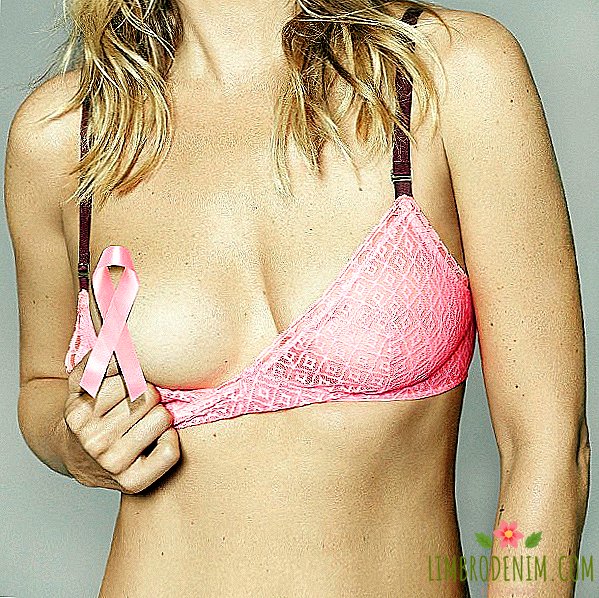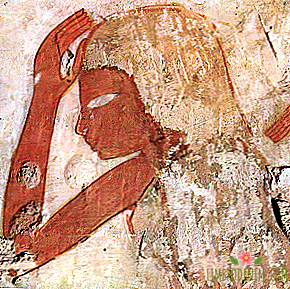Elections 2016: Can women-politicians in Russia have real power?
Women in politics were always talked about as an exception to the rules, if not as a curiosity, this can be seen from the upcoming presidential elections in the United States. Hillary Clinton in his election campaign is very willing to use the gender factor, which, quite possibly, is trying to attract a certain electorate. Someone Clinton supports this, and someone, on the contrary, criticizes: they say, it’s enough to be a populist, simply because the president is a woman, she will not be the best president. In Russia, the topic of women politicians has not yet reached the level of discussions about the presidential chair, but it is marking somewhere between sportswomen, Komsomol and just beauties, sometimes making respite on the discussion of Valentina Petrenko's hair. There are several times less women in politics in Russia than men, and rare women often have to defend their right to be competitive politicians rather than decorative objects.
As candidates for elections to the State Duma on September 18, 2016, just over a thousand women are candidates, which is 23% of the total number of candidates. Among them are public figures, lawyers, businesswomen, young activists, rural school teachers, pensioners, two workers of the Voronezh nuclear power plant and the first woman in space, Valentina Tereshkova. The average age of all women candidates in this case is 44 years, which indicates the high involvement of young people in politics, despite the widespread opinion about the general apathy of the millenial generation. We talked with some of the young women candidates in the upcoming elections and tried to figure out whether women politicians in Russia can have real power.
There are no seats
Political analyst Tatyana Stanovaya believes that in the current political situation in Russia, women perform a certain function, but they are not politically independent in the full sense: "We know examples of bright, strong and successful women, such as Valentina Matvienko, Olga Golodets or Elvira Nabiullina. But their functions are rather hardware, party or economic. All these women are good performers and lobbyists. But for independent and bright, politically, women in Russian politics there are not many places. . The reason for that - the conservatism of society are no special artificial barriers to women in politics, but for objective reasons, men occupy more space in politics In traditional societies, and hard modes is even more pronounced. "..

↑ Julia Yuzik, candidate from the PARNAS party in the South single-mandate district
While the power is served by female business executives, and after summer repair, Moscow is sitting on a hundred-meter-long New Arbat shop with a package of Spring on its head and trying to tune in to the elections, a real election campaign has unfolded in the villages of Dagestan, cut off from each other by off-road and mountain passes. Yulia Yuzik, a candidate from the PARNAS party in the Southern single-mandate district, walks around the Khasavyurt market in a T-shirt with her poster and distributes calendars with her receptionist’s contacts, and in a remote village of the Khunzakhsky district, the dynamics of the mosque announce her soon meeting with voters.
Julia Yuzik is a candidate in the republic, where there have been no new faces since the 90s and the cult of power and clan system has been rising above all. When she began to travel to the mountain villages and meet with future voters, people confessed to her that she was the first politician whom they see alive and with whom they speak on equal terms. But so that she was given to work with voters, Yulia lined up a dialogue with the authorities for several months: “At first nobody paid attention to us at all and did not take it seriously. As a result, the head of the republic, Ramazan Gadzhimuradovich Abdulatipov, met me and told me I turned to him if I had any problems and promised that no one would disturb me. After that, it became easier for me to negotiate with the heads of the districts. "
Julia first came to the Caucasus in 2001 when she came to Chechnya to work as a military reporter. She later wrote two books related to the region, the Brides of Allah and the Beslan Dictionary. Yulia admits that she chose deliberately for her activities because she always wanted to work in the Caucasus: “I was offered to go from Moscow and not consider the option of Dagestan, because in the Caucasus, United Russia always wins by 146%.” this is a plan that was doomed initially to fail. But I decided to try my hand. If you close your eyes now to corruption and cronyism, Dagestan is a region with great prospects, you can take it to the level of self-sufficiency and make a sample of it. "
According to her, voters accept it warmly: “When you say that you have a book translated into 11 languages of the world, people do not perceive it. In a conservative society, such statements are regarded simply as boasting. I understood this very quickly and now I build a dialogue People often think that I am younger, and this causes them to distrust. Therefore, I always start with the words: "Hello, I am 35 years old, they immediately look at me with different eyes. And then I kill everyone without a doubt and say: - I mother of four children. "All at this moment begin applause "It looks very funny. But for them this fact is decisive, which deserves trust and respect."

↑ Maria Yepifanova, candidate from the Yabloko party in Ryazan single-mandate constituency No. 156
“At the beginning of the campaign, I tried to appeal to a male audience, because I was advised by our Moscow consultants in this way. But I myself quickly realized later that in my election campaign I had better turn to women. For example, at my recent meeting of 400 people there were almost more half were women. At the end of the meetings, I usually say: "I really ask you to support me. Of all the candidates for the State Duma from the Republic of Dagestan, I am the only woman. You must understand how difficult it is in the men's world - to try and get through To be heard. "My assistant, Avarka by nationality, when I speak, hears women talking to each other:" We will be for her, because only a woman can understand a woman. ""
Gender faction and the "Women's Wing"
The topic of women's solidarity, to which both Julia Yuzik in Dagestan and Hillary Clinton in California is appealing to communicate with voters, is far from being alien to female politicians in Russia. Perhaps this is due to our universal strong love for the holiday of March 8 and echoes of the solidarity of working women in the struggle for equal rights.
As political scientist Yekaterina Shulman notes, "" all women "do not exist as a political actor" and "the feminist movement, speaking of the general women's interest and the general women's political agenda, operates in some way with a false multitude." But still, when it comes to politics, women often have the need to unite into a faction, a commission or a council. And in Russian politics this can be seen in the example of both the center-left and center-right parties, the Yabloko party and the Growth Party, respectively.
Maria Yepifanova, a candidate from the Yabloko party in the Ryazan single-mandate constituency No. 156, believes that it is the Yabloko party that serves as a vivid example of the fact that a woman has a place in politics in Russia: "We are the only major party in Russia, headed by a woman, Emilia Slabunova. We have a strong gender faction, and only our party has a section in the election program devoted to gender equality. I hope that there will be more women politicians in Russia and men will support us in this. And as for talking about who is profession tional or smarter, everything depends on the individual and on his abilities. "
The persistence of a 29-year-old candidate Maria Yepifanova can only be envied. After all, she essentially leads her election campaign almost single-handedly: “I am a novice candidate, so I do a lot with my own forces and with my relatives and friends. That is, I’m one candidate and agitator and PR person. My flyers, for example, I myself transported in a suitcase on an electric train and then distributed them myself to people on the streets of Ryazan and in the region. I just approached voters on the street and got acquainted. People reacted differently. On the whole, the mood was positive, there was not a single negative comments about my age and I was attracted to the fact that the candidate himself, and not his agitator, communicates with them. There were several comments: they say that you can do it alone. To this I replied that, of course, one candidate in the field is not a warrior, it will be better if an entire democratic faction of the Yabloko party appears in the State Duma, but I go to the State Duma to lobby the interests of the residents of the Ryazan region. Many people rejoiced: "Finally young. How we are tired of the same people who have been in our parliament for twenty years “".

↑ Tatyana Mineeva, candidate in the Kuntsevo single-mandate district of Moscow
Another party with a strong female agenda is the Growth Party. Tatyana Mineeva, a candidate in the Kuntsevsky single-mandate constituency of Moscow, heads the "Women's Wing" party and deals with the development of women's and family entrepreneurship. “In the“ Women's Wing ”of the Growth Party, I invited all my acquaintances to female entrepreneurs. They did not all become members of the party, but simply supporters. These are the women who saw in the Growth Party a platform that will speed up the implementation of their project and promote the adoption of laws necessary in certain social areas. We have already developed a draft law and several amendments to existing legislation, for example, on introducing the concepts of "family" and "family business" into the Civil Code and a corresponding amendment legislation. We have an example of a mother of seven sons. She opened a cafe just to feed her family, because she is not hired, she is punished and fined because her children help her in this business. "
Answering the question of whether a woman can have real power, not a decorative function, Tatyana explains that young women in Russian politics have to pay attention to their presentation: “I can say for myself that I often say:“ Where are you so young got into politics? "Then I start talking about my experience, about being a candidate of economics, showing the program of work, and people are already changing their ideas." Tatyana follows her filing really carefully. She leads an active election campaign online, and in her video blog she openly talks about the candidate's everyday life. “Women at the federal level and in Moscow are well represented. This is very trendy now,” Tatyana continues. “But there are very few women in the Duma. How are women different from men: we will not miss a single trifle, we will not put a raw dish on the table. What It concerns all aspects of quality of life, women understand this better, because we know how long the queues at our clinics are or how difficult it is to arrange a child in a kindergarten.The pledge of happiness of any family in harmony between a man and a woman. Duma must be a woman s to ensure its successful operation. "
Woman as a way to be in trend
According to political analyst Tatyana Stanova, the role of a woman-politician in Russia is heterogeneous and varies depending on the party: "Women in Russia remain a kind of accompaniment to a political party or power structure. Now it is only getting stronger. We see that the power is ladies are becoming a symbol of Putin’s defensive and conservative policies, for example, Natalia Poklonskaya, the prosecutor of the Republic of Crimea, or Maria Zakharova, an official representative of the Russian Foreign Ministry. rather, with image coquetry of power, where the real influence is still largely assigned to the male half. "
Tatyana Stanovaya believes that in Russia there is now a certain fashion for bright women politicians: each structure adapts to it in its own way, but on the whole, this fashion in the case of Russia speaks about washing out real politics. Indeed, a number of parties going to the polls show cosmic results in the field of gender equality. For example, according to our calculations, the Russian Party of Pensioners for Justice ranks second in the ratio of men and women candidates - 68% and 32%, respectively. In Russia, after all, there are many active pensioners — a thought immediately suggests itself, and the shops at each entrance clearly demonstrate this. But the average age suggests otherwise: it is five years below the retirement age, and a quarter of the candidates have not yet turned 35 years old. The first place is occupied by the party "Civil Force". Here, the ratio of men and women is a record one - 55% and 45%. At the same time, the average age of women is 28 years. But the online activity of the party does not speak about its youth, nor about progressiveness. There are no press services contacts on the site, and profiles of women candidates in single-mandate constituencies are either absent or are full of a variety of cats and selfies.
“This is connected with a deadly policy,” Stanovaya explains. “Many parties are projects that perform a specific function. Accordingly, those who are on the candidate list play an instrumental role. In this form, the woman becomes only a fashionable attribute that emphasizes the progressiveness of the party. This is an absolutely formal technological approach: to fill the list with last names, based on gender and age factor, while not caring at all about political content. "

↑ Natalia Eliseeva, single-mandate candidate from the “Civil Force”
According to Natalia Eliseeva, one of the youngest single-mandate candidates from Civil Force, the reason lies in another, namely, the candidates do not understand the power of social networks: "I told the party leader that if the team wants to seriously develop the party, then they will have to change everything from the logo and website to the structure of the party. As for the candidates themselves, unfortunately, there are still people who underestimate the power of social networks. They work offline and completely forget about online activity. Unfortunately, fraught with ". Natalia herself is not yet officially a member of the party and appears to voters as a separate unit: “I had offers from different parties. I chose“ Civil Force ”because the party is positioning itself as a party of young, active and socially diverse people. Although we have there are disagreements on the program. The party itself, for example, has a more liberal focus and encourages ambiguous strata of society, for example non-systemic opposition. I do not support it, but the leader of the “Civilian Force” supported my position, since tia is developing and she needs bright young representatives. "
Natalia has been involved in politics since the age of 18, from the moment she entered the university in the direction of "political science". Today she is 23 years old, she is writing a graduate thesis and is a candidate for the Kuntsevo single-mandate constituency in Moscow. In her electoral program, Natalia focuses on education. She suggests developing secondary technical and secondary vocational education, which will help people enter the labor market earlier. On the question of whether there is a place for women in politics in Russia, Natalia replies that everything depends on the person: "I have repeatedly heard the opinion that the number of women in politics should be increased. But not all women who go into politics now are really she understands and has serious political intentions. For some women, it’s just a “party.” In general, it’s better if they didn’t go there. But if a woman thinks she has a chance, then of course she will pass, or at least they will notice it. No stick will be inserted into the wheels. "
Athletes, beauties and male politicians
An analysis of candidate lists of parties shows that the smallest percentage of women in the total number of candidates for the Liberal Democratic Party is only 13%. When asked if she is upset about the fact that women are worst represented in her party, 27-year-old Ekaterina Fedotova, candidate in the Chelyabinsk single-mandate electoral district No. 189, answers in the negative. "There are only three girls among our activists in the party headquarters. But this does not upset us. We do not strive for complete matriarchy," she calmly replies. Catherine joined the game three years ago. Before working in the LDPR, where she now heads the public reception center, Catherine was a doctor in the sanitary epidemiological station and in parallel - the chairman of the local union. She decided to go to politics after starting to optimize health care and the massive cuts that followed. Then she became disillusioned with the strength of budgetary structures and trade unions and decided that it would be easier for her to provide real assistance to people in politics: “Everyone asks me why I chose the Liberal Democratic Party. I always answer honestly that because of Zhirinovsky. Outsiders simply do not understand enough well what kind of person he is and how talented he is. "
Один из проектов Екатерины - завод по переработке и утилизации твёрдых бытовых отходов: "В Челябинске городская свалка находится в самом центре города. Чтобы переехать из одного конца города в другой, надо проехать мимо 11 тысяч тонн мусора. У нас нет утилизации отходов, идёт просто их складирование, и вот уже много лет эта проблема не решается. Я же предлагаю на этой свалке зарабатывать деньги для города и региона. The amount of waste grows every day, and the amount of oil and gas is reduced, and municipal solid waste can be an alternative source of energy. There is little interest in my project in the field. Unfortunately, I cannot implement it myself, because I do not have enough resources. I would even be glad if my idea was stolen, only this project would be accomplished. "

↑ Ekaterina Fedotova, candidate in the Chelyabinsk single-mandate constituency No. 189
Local media in a condescending form call Ekaterina an athlete and a beauty competing with male candidates, and in an interview with her they only raise questions about Zhirinovsky's personality and have little interest in her election program. Catherine doesn’t particularly react to this: “I try not to argue with anyone, but, on the contrary, to prove with deed that people are different. I now actively go to debates, and I am always surrounded only by men. Initially there were smiles, but when it comes to I got to the point, not all of the candidates were able to answer some kind of caustic questions. I then said that everyone laughed at me, but I, a young girl, can definitely stamp my every word. "
"The place for a woman in politics was, is and will be there",
- Maria Baronova, an independent candidate in the Central single-mandate electoral district No. 208 of Moscow, answers the question of whether there is a place for women in politics in Russia. “Because politics is the art of managing society. People manage society, and a woman is a person,” explains Maria. She, like Julia Yuzik, became a candidate in the upcoming elections thanks to Mikhail Khodorkovsky’s Open Elections project. But, unlike Yulia Yuzik, who was supported by PARNAS party and helped register bypassing bureaucracy, Maria Baronova had to collect signatures from the residents of the Central Administrative District of Moscow to register her candidacy: “This is the most inconvenient and very difficult district. : “I will come, I will vote for it, but I will not leave my passport data.” As a result, we sent a copy of my passport to all the mailboxes of the Central Election District. I told voters: “I showed you my asport, do not be afraid to show your passport collectors -. it's not you, it is only the document without you with this document, you can do little "After that, people began to show a passport and more likely to leave their signature."..
In the Duma, Maria plans to engage in criminal, civil and arbitration legislation: “We have obvious problems with legislation and legislation in general. In the previous five years, many laws of a repressive nature have been passed. I plan to seek the repeal of these laws and the decriminalization of many articles of the Criminal Code. I also want to deal with the availability of modern medicines and the distribution of strong painkillers for seriously ill people. HIV infection, advocating for the prevention of HIV infection is not through prayers, but through barrier contraception and regular testing. "

↑ Maria Baronova, independent candidate in the Central single-mandate electoral district No. 208 of Moscow
The example of Maria Baronova is important for this whole candidate history not for a gender reason, but simply because it shows the politician's ability to collect signatures for a short time in the most uncollectible district during the summer holidays. And gives some hope for the development of civil society in Russia. “A mature civil society, a developed human rights theme, the existence of a real opposition - if all these institutions gradually develop, Russia will move in the direction that women will get more chances for self-realization in politics,” believes Tatyana Stanovaya. “But Russia is a country very non-uniform, so it is more difficult to move in a progressive direction. This process will go very slowly, I don’t think that we will see the result in a short time. "
Despite the fact that the forecast of a political scientist does not make us hope for a quick change, he at least outlines a route that should be followed. Especially since examples of politicians who are able to loosen people and awaken in them the desire to be active citizens for a while are already emerging. This instills confidence that in the future in Russia there will be even more opportunities for the self-realization of politicians. Both men and women.
Photo: Julia Yuzik, Maria Epifanova / Facebook, Natalia Eliseeva, Ekaterina Fedotova, Tatiana Mineeva / Facebook, openrussia.org





